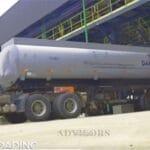… welcomes participation of international mining firms, traders in Nigeria, amidst Glencore’s corruption scandals across Africa
Oredola Adeola
Dr. Dele Alake, the Minister of Solid Minerals Development, has unveiled the Federal Government’s strategy to combat illegal mining in the country by implementing a dual-pronged approach (simultaneous enforcement of coercive and persuasive measures) to unlock energy and natural resources for sustainable development.
Alake made this known in his address while declaring open a two-day ministerial stepdown retreat, organised for the staff of the ministry and its parastatals on Friday in Abuja.
The theme of the retreat is “Delivering on the Eight Presidential Priorities.”
Advisors Reports gathered that the retreat was organised towards ensuring that the staff of the Ministry performs their duties in line with the eight presidential priorities of the President Bola Tinubu’s administration, particularly in unlocking energy and natural resources for sustainable development.
Mr Alake said that the dual approach comprised both coercive and persuasive measures, being concurrently to get the desired result.
The Minister emphasised that the persuasive method involved formalising artisanal and illegal miners into cooperatives, where they could attract adequate funding and be easily identified for incentives and other interventions.
“Their business will become enhanced, and they can attract funding from financial institutions.
“They can increase their profits then the government can identify with them and obtain the necessary royalties, taxes and revenue that have been lost before,” he said.
According to the minister, within three months of the policy, no fewer than 70 cooperatives have been established.
He said that part of the coercive approach was the establishment of a 2,200-strong Mining Marshal Corp who were drawn from the Nigeria Security and Civil Defence Corps (NSCDC) and recently deployed to the 36 states and the Federal Capital Territory to secure the mining environment.
The Minister explained that Africa possessed more than 60 percent of the world’s natural resources and should take advantage of the resources to develop its economy by demanding value addition for its mineral resources.
He reiterated that approval for licences would only be given to mining companies that would comply with value addition to mineral resources.
Mr Alake pointed out that Nigeria has the critical minerals needed for the global energy transition in commercial quantities but requires the cooperation of its workforce to assist in marketing the products and sanitising the sector.
He said that the government was marketing its solid minerals to attract foreign direct investment, create jobs, support small and medium-sized companies, and foster sustainable economic development.
The minister said that the retreat was a period for the workers to reflect on their performance and make necessary adjustments, as productivity was key to achieving the presidential priorities areas.
He added that it was an opportunity for the workers to engage in fruitful discussions, especially towards the ministry’s seven-point agenda, shared best practices, and identifying innovative strategies to actualise the presidential priorities.
“The importance of delivering on this priority area (energy and natural resources) cannot be overemphasized.
“The Nigerian economy is in dire need of rapid economic growth through the solid mineral sector, given the limitless value this sector can provide.
“I believe with the efforts of everyone in this room, the Nigerian Economy can be positively catalysed,” he said.
The minister maintained that good character and the right mental capacity were required to achieve the ministry’s seven-point agenda.
Earlier on Thursday, while receiving Gary Nagle, Group CEO of Swiss-based Glencore, the Minister of Solid Minerals Development, Dele Alake, affirmed Nigeria’s readiness to welcome international big players into the mining sector.
Alake highlighted that Nigeria has an abundance of critical minerals like lithium, gold, zinc, and nickel that are in high global demand.
He emphasized the government’s commitment to providing an efficient governance structure and sanitizing the operating environment of the mining sector to attract investment.
“We want you to come here and invest because we have a preponderance of critical minerals like Lithium, gold, zinc and nickel amongst others that are in high demand globally,” Alake said.
Glencore group CEO Gary Nagle in his remark stated that, “Glencore will invest in Nigeria’s mining sector if the government ensures a stable business climate.
He said, “We are looking at opportunities to invest in the mining sector with emphasis on lithium, nickel, cobalt, zinc amongst others.”
Glencore, a global mining and commodities company, is leveraging the incentives offered by the Nigerian government, such as tax waivers and full repatriation of profits to investors, to focus on the extraction and commercialization of critical minerals that are in high global demand.
Advisors Reports gathered that Glencore has faced challenges related to its Ethics and Compliance Program in various countries, notably the Democratic Republic of Congo (DRC), in recent years.
The company admitted to paying significant sums in bribes to government officials through subsidiaries and intermediaries, violating the Foreign Corrupt Practices Act.
Glencore has been actively addressing these issues and has reaffirmed its commitment to upholding good governance and ethical business practices in the regions where it operates.




